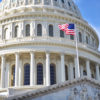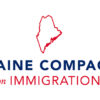Strain Placed on Russian Entrepreneur’s Business Because of H-1B Visa Cap
Date: May 14, 2015
Up until 2011, Denis Kiselev was leading a successful career in financial services in his native Russia. He had a postgraduate degree in economics from The Ohio State University, but like so many other foreign-born students, he had returned home after graduation. After fifteen years in financial services, however, Kiselev decided that he wanted to switch to something more fun: Technology. Once he decided he wanted to be part of the tech world, he felt there was only place to go — the west coast of the United States.
Through a program called the Founders Institute, Kiselev moved to Seattle, Washington, and began building a new business. The company, SnapSwap, Inc., launched the day he graduated from the program and has been growing ever since. SnapSwap is a virtual currencies exchange — a trading platform similar to those that use real currency, but for electronic games. Eventually, Kiselev hopes it will become the primary trading platform for all virtual currency exchange, whether for games, gift cards, or other purchases. Everything is in place for the company to succeed: they have venture capital funding, a board of directors, office space, and a great idea — but one thing is missing. Kiselev’s co-founder, also from Russia, could not get an H1B visa. As a result, she works from Amsterdam in the SnapSwap European office.
Kiselev says he loves being a part of the tech ecosystem here in the United States, and he was lucky enough to secure an H1B visa for himself. “I feel very welcomed by the local entrepreneur community,” he says. But with his cofounder halfway around the world, it is hard to grow the company as quickly as he would like. They are not giving up, but for others, the barrier is too high. Kiselev says that the environment in the United States is unparalleled for tech businesses. But, he also acknowledges, “I am sure there are a number of people who give up and decide to run businesses in other parts of the world.”


